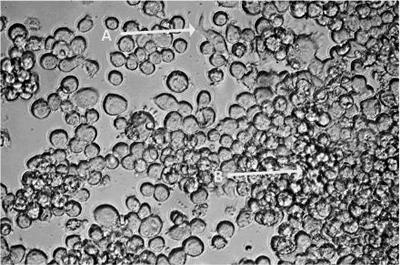In collaboration with Steris© the environmental healthcare unit is developing a sensitive cell based infectivity assay to analyse prion infectivity and to assess prion decontamination technologies.

Iatrogenic CJD, caused by the transmission of the infectious prion from medical accidents; including transmission from poorly sterilised instruments, transplants and transfusions from CJD infected donors is becoming more of a concern as increased reported detection of prion in hospital samples and the reports of the unsuitable sterilising regimes carried out at sterile service departments (SSD’s).
A large number of techniques for the detection of prion contamination have been researched; however the only methods used to determine the infectivity of remaining prion contamination are animal based infectivity bioassays, which have limitations in both sensitivity and specificity. Current research within the EHU is developing a new cell based assay to assess the infectivity of prion contamination and further analyse the efficacy of current decontamination methods and overcome the limitations of current detection methods.